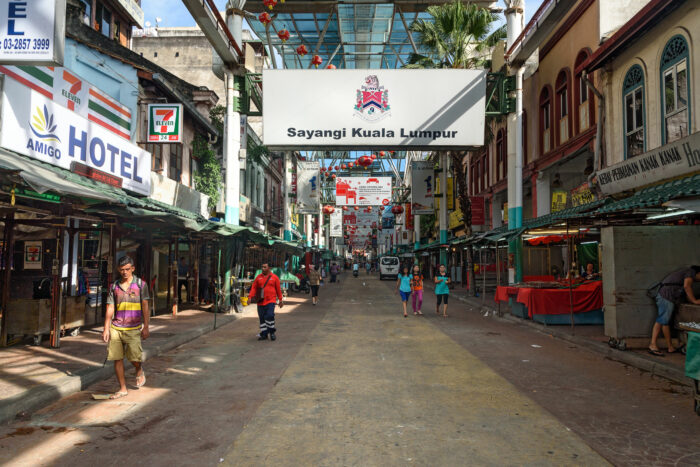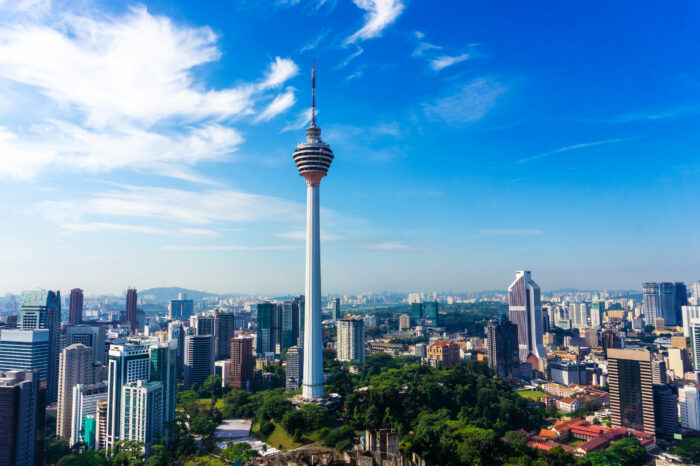Singapore’s aviation sector set to receive increased wage subsidies

This is part of the S$870 million OneAviation Support Package announced in Budget 2021 to support firms hit hard by the pandemic.
Singapore sets aside S$1 billion to co-fund digital solutions with businesses

The programme will help co-fund the costs of trials and the adoption of frontier technologies such as 5G and artificial intelligence.
Malaysia launches dedicated jobs programme for graduates

Poor English proficiency and skills mismatch among graduates are reasons why they are less desirable in the job market, says MEDAC minister.
Australia sees workers on wage subsidies fall

The number of workers who collected wage subsidies decreased by about 2 million over an eight-month period last year.
Hong Kong welfare minister rejects temporary unemployment fund

The minister said that it would be tricky to draw the line for when the scheme should stop, and urged that public policy needs to be fair.
Malaysia approved RM12.76 billion in wage subsidies as of end January

The National Employment Council estimates that over 160,000 new jobs will be created this year through committed investments.
Singapore pumps in S$5.4 billion to hire 200,000 locals

The government announced a range of Budget 2021 measures aimed at helping workers and businesses to land jobs and sustain operations amid the pandemic.
Australian MP calls on six months parental leave for fathers

This would encourage fathers to share care of the child, causing less disruption and long-term impact to women’s careers, she says.
South Korea expects modest recovery in job market

Service industries that require face-to-face interactions are expected to have a slower recovery as compared to other sectors.
Japan’s overtime pay in 2020 sees largest fall in 11 years

The speed of decline was the fastest since 2009, when the global financial crisis led to a drop of overtime wages by 13.5%.
South Korea sees rise in paternity leave in 2020

There were 27,423 private sectors workers who requested paternity leave last year, more than double that of 2017’s total of 12,042.
Australia’s payroll jobs rise 1.3% in first half of January

Payroll jobs had the largest increases in the states of Queensland, up by 2.8%, and South Australia, up by 2.4%.
Unemployment in Hong Kong not just limited to grassroots level

While unemployment is severe among the lower class, middle-level occupations have also been badly hit by unemployment.
Hong Kong seeks to relax subsidy criteria for low-income workers

The basic subsidy for low-income families, once relaxed, would benefit around 24,000 more underemployed households.
Singapore government looks to hire more private sector talent

The end goal is to have “greater porosity” between the public sector and the outside world, said Minister Chan Chun Sing.
MEF wants all economic sectors to resume operations in Malaysia

The continued closure due to movement controls will inevitably lead to bankruptcy and unemployment, cautions the Malaysian Employers’ Federation.
HR support key to help workforce navigate uncertain future

Human resource management cannot be considered as a support function in an organisation, but rather a strategic partner, says Brunei minister.
Some 300,000 Australians benefit from wage hike

This covers the country’s retail, fast food and warehouse workers, as well as those who work in aviation, arts and recreation, and tourism.
Japan’s non-regular workers yet to receive compensation for forced leave

Some 33.4% of non-regular workers received no compensation for forced leave, as compared to 14.8% for regular staff, a survey shows.
South Korea mulls additional relief for self-employed and small businesses

The supplementary budget is reported to be in the scale of 20 trillion won (US$17.9 billion) to 30 trillion won (US$26.8 billion).
Hong Kong’s minimum wage to remain at HK$37.50 an hour

The decision was made after a review from government officials, academics and business representatives showed majority consensus.
New Zealand’s tech sector constrained by skills mismatch

The majority of roles being recruited are not for entry level positions, indicating a longer-term skills shortage for senior talent.
India proposes launch of portal to collect gig worker data

The data could help formulate health, housing, skill, insurance, credit and food schemes for migrant workers, says the finance minister.
Japan’s youths hit hard by pandemic-led job losses

While the number of regular jobs increased 0.5% in 2020, that of non-regular jobs — including part-time roles — fell 3.9%.
Companies in Malaysia to help with COVID-19 vaccination and tests

This will help the country manage the economy better, and help industry players affected by the pandemic, Malaysia’s HR minister says.
Opportunities for gig-working in India rises

India’s lockdown period saw companies adopt a WFH arrangement for their staff, cutting down on staff strength, hiring freelancers and outsourcing tasks.
Only 37% of firms meet Japan government’s push to telecommute

The survey by business lobby Keidanren also found that the number of people commuting to work was reduced by 65%, or around 870,000.
Malaysia’s wage subsidies total RM20.7 billion in payouts

The third phase of the country’s wage subsidy programme will receive an additional injection of RM500 million.
Women in India hit harder in employment due to pandemic

Out of those who could retain their jobs, about 83% of women workers in India faced a severe income drop, said Oxfam India.
Thailand rolls out jobs support to tourism workers

The Tourism Council of Thailand wants to implement a dedicated support programme for tourism workers to reskill and upskill by March.
